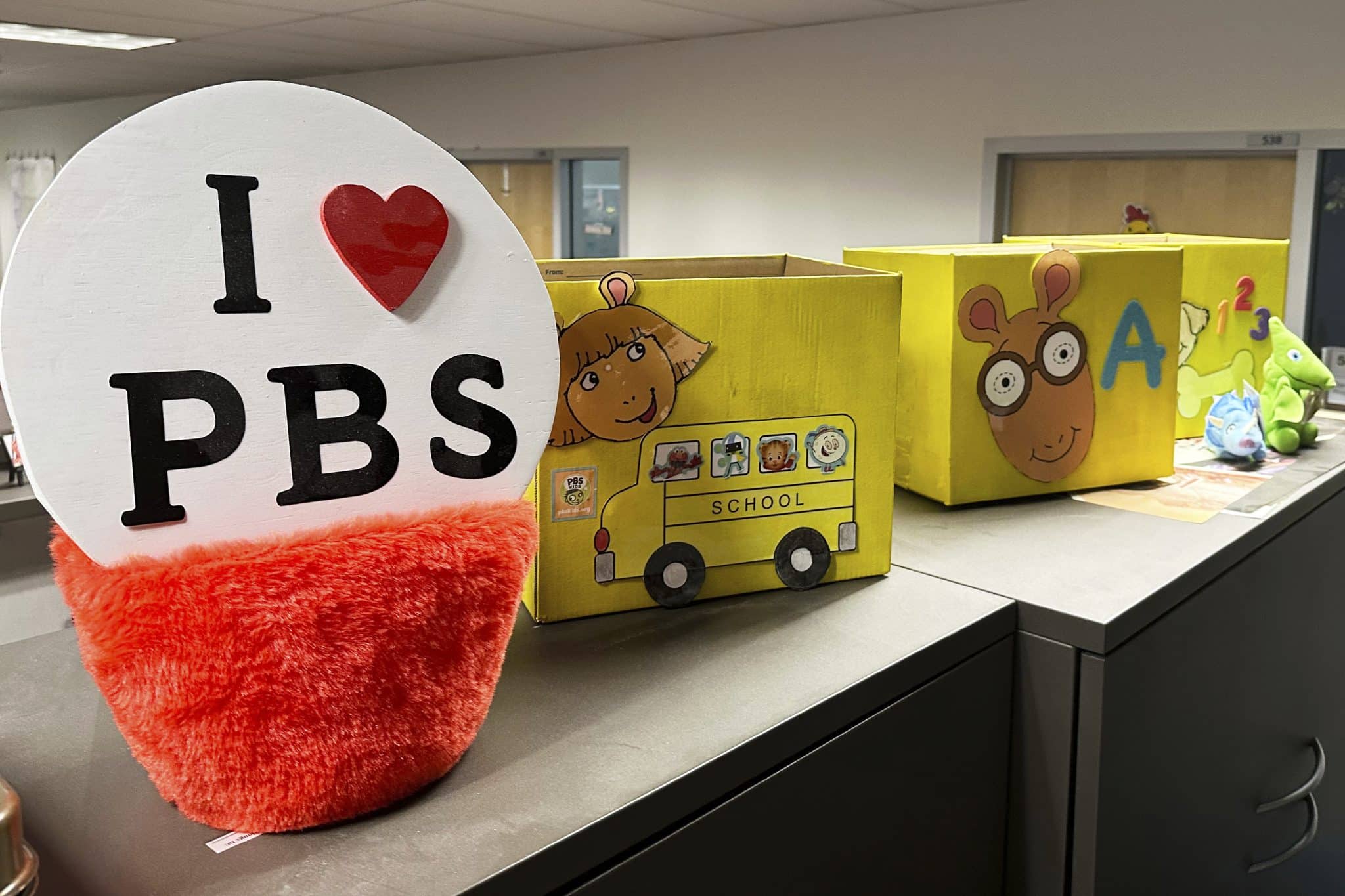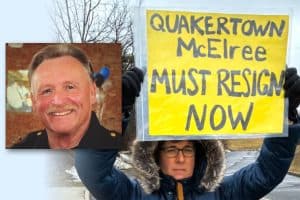Last week, President Donald Trump signed an executive order aiming to slash public subsidies to PBS and NPR, alleging bias in the broadcasters’ reporting. The order instructs the Corporation for Public Broadcasting and other federal agencies “to cease federal funding for NPR and PBS” and further requires that that they work to root out indirect sources of public financing for the news organizations.
The Corporation for Public Broadcasting, which funnels public funding to NPR and PBS, said that it is not a federal executive agency subject to Trump’s orders. The head of PBS said last Friday that Trump’s executive order aiming to slash public subsidies to PBS and NPR was blatantly unlawful.
WHYY-TV is the primary PBS member station serving southeastern Pennsylvania, southern New Jersey and all of Delaware. WHYY reaches and engages hundreds of thousands of television viewers a week across three digital channels (WHYY, Y2 and WHYY PBS Kids 24/7). Viewers can also stream their video programming online 24/7 at video.WHYY.org.
WHYY-FM is the Philadelphia Region’s most-listened-to public radio station. WHYY-FM combines up-to-the-minute local, national and world news with award-winning original programs.
Doylestown resident Angela Nutter, food program coordinator at a local nonprofit, said WHYY has always been part of her family’s lives, through educational children’s tv shows for her brother and herself and her sons; the variety of news and entertainment programs on the radio have also benefited her family.
“Public television and radio has added depth and expanded our knowledge and enjoyment by exposing my family to things both new and familiar,” said Nutter. “To cut funding for that sort of valuable programming could mean loss of access to educational programming and news coverage from all around the world, just pieces that instill joy.”
“Many stations — especially those in rural areas — rely heavily on this funding to deliver trusted news, educational programming, and cultural content, and remain at far greater risk.” – Bill Marrazzo, President & CEO for WHYY
Nutter has been a firm supporter of public broadcasting since she was old enough to make pledges and will continue to do so.
WHYY receives approximately $4 million per year from the Corporation for Public Broadcasting. “That’s about 7 percent of our annual operating budget,” said Bill Marrazzo, President & CEO for WHYY. “About 44 percent of our budget is covered by memberships and contributions from our audience. Federal support helps us serve the community more fully and acts as a foundation we build on with local support.”
Program funding and underwriting also provides 34 percent of WHYY’s budget.
Thanks to the support of their audience, Marrazzo said WHYY is on solid financial footing. “But without federal funding, the road ahead becomes more challenging — not just in sustaining what we do now, but in continuing to grow and innovate,” he said. “The loss would be felt nationwide. That said, many stations — especially those in rural areas — rely heavily on this funding to deliver trusted news, educational programming, and cultural content, and remain at far greater risk.”
In spite of the potential funding cuts, WHYY does not anticipate any immediate reduction in coverage.
Larissa Hopwood, also a Doylestown resident, always looked at NPR, PBS, WHYY, and other Public Broadcasting Programs as reliable, educational, and unbiased forms of programming.
“In a world where news sources can often be partisan, it is important to have a place to check in with that has such a strong reputation of journalistic integrity and fact-based reporting,” she said.
As a children’s musician, author and educator, programs on PBS were a cornerstone for her life. Shows like Sesame Street and Mr. Rogers taught her to see the world through other lenses.
Her son, Rowan, who is now 16, watched his share of Sesame Street. “By then, there were new shows that did the same thing,” said Hopwood. “Magic School Bus. Curious George. Daniel Tiger. Rowan retained so much from all of those shows when it came to math, science, the society that we live in, and how to relate to others.”
These days Hopwood relies on NPR as her most balanced news source. “There is so much bias out there,” she said. “Knowing that you have a space that is uncompromising in their journalistic integrity is both comforting and empowering.”
It’s abysmal to her that these programs are on the chopping block.
“Having free, easily accessible educational entertainment for children is an investment in our future,” said Hopwood. “And having free, easily accessible reporting and commentary on the world around us is essential for a strong America. Based on the current administration’s comments about DEI, education, free speech, and news outlets, this is a very biased action and is a dangerous road to go down.”
This is another example of Trump and his cohorts trying to control a narrative. “As someone who grew up in a lower middle-class family and who has been raising a child in a single parent home without much wiggle room in my budget, it means a lot to be able to access spaces like NPR for news and educational entertainment,” said Hopwood. “I know that there are a lot of families that feel the same way. It feels like yet another attack on people who are in the lower income range in our country. And that’s very wrong.”
She added the local NPR stations like WHYY and PBS39 in Bethlehem not only help us stay informed and connected as a community – they also serve as community outreach, which strengthens our society in immeasurable ways.
The vast majority of public money for NPR and PBS goes directly to its hundreds of local stations, which operate on a combination of government funding, donations and philanthropic grants. Stations in smaller markets are particularly dependent on the public money and most threatened by the cuts Trump is proposing.
In a social media post, the White House said that the outlets “receive millions from taxpayers to spread radical, woke propaganda disguised as ‘news.’” PBS CEO Paula Kerger said that the president’s order “threatens our ability to serve the American public with educational programming, as we have for the past 50-plus years.”
The move against PBS and NPR comes as Trump’s administration has been working to dismantle the U.S. Agency for Global Media, including Voice of America and Radio Free Europe/Radio Liberty.
Those efforts have faced pushback from federal courts, which have ruled in some cases that the Trump administration may have overstepped its authority in holding back funds appropriated to the outlets by Congress.
The Associated Press contributed reporting to this article.






